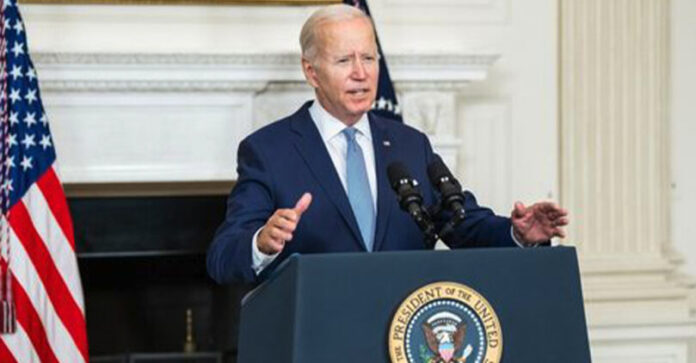
By Stacy M. Brown, NNPA Newswire Senior National Correspondent
Beginning Nov. 1, federal student loan borrowers will have to resume making payments on their loans for the first time since the COVID-19 pandemic in 2020. And, after the Supreme Court smacked down President Joe Biden’s original loan forgiveness program, the administration is targeting another avenue to relieve the stress of millions of borrowers.
The Biden-Harris administration has formed a committee that will meet on Nov. 6 and Nov. 7 to discuss a policy draft for a new loan forgiveness program. The 16-member committee includes individuals from civil rights organizations, student borrower advocacy groups, higher education officials, and government officials.
The Department of Education said in a statement that the Biden-Harris Administration has continued important work to get student debt relief to as many borrowers as possible through negotiated rulemaking under the Higher Education Act. In releasing a draft regulatory text for specific borrowers, the administration outlined the next steps to investigate relief options for borrowers having a hard time. Forgiveness delivered to borrowers through negotiated rulemaking will build on the historic actions the Biden-Harris Administration has already taken to provide student debt relief to millions of Americans, officials said. To date, the Biden-Harris Administration has approved $127 billion in debt relief for nearly 3.6 million borrowers and launched the most affordable student loan repayment plan in history, the SAVE plan.
“President Biden and I are committed to helping borrowers who’ve been failed by our country’s broken and unaffordable student loan system,” said U.S. Secretary of Education Miguel Cardona. “These draft proposals would build on the historic $127 billion in loan forgiveness the Biden-Harris Administration has already approved for nearly 3.6 million borrowers. We are fighting to ensure that student debt does not stand in the way of opportunity or prevent borrowers from realizing the benefits of their higher education.”
The draft regulatory text provides negotiators and the public with more details as the Department of Education works toward reaching a consensus on proposals. The text includes language that would help four types of borrowers in debt: those with current outstanding federal student loan balances that exceed what they originally borrowed; individuals with loans that first entered repayment 25 or more years ago; those who took out loans to attend career-training programs that created unreasonable debt loads or provided insufficient earnings for graduates, as well as borrowers who attended institutions with unacceptably high student loan default rates; and where the Secretary determines those eligible for forgiveness under repayment plans like income-driven repayment or targeted relief programs like Public Service Loan Forgiveness or closed school loan discharges except they have not applied for such relief.
The Department also released an issue paper outlining additional questions and information to guide discussion about a fifth group of borrowers—those who are experiencing financial hardship that the current student loan system does not currently adequately address. The issue paper lists ideas brought up in the first round of negotiations that need developing and discussing to come up with possible regulatory proposals for the third round of talks or future policymaking efforts.
Questions in the paper include which types of borrowers may be experiencing hardship, whether standards used to make improvements to the bankruptcy process could be applied to student debt relief, and what data would be needed to determine whether a borrower is facing hardship. In addition to discussing the draft regulatory text, negotiators will spend the afternoon of the second day of the session discussing hardship.
The Department said it would continue to refine regulatory text in advance of the third session, Dec. 11 and 12. The public will have an opportunity to submit written comments on the draft rules when they are published next year.


